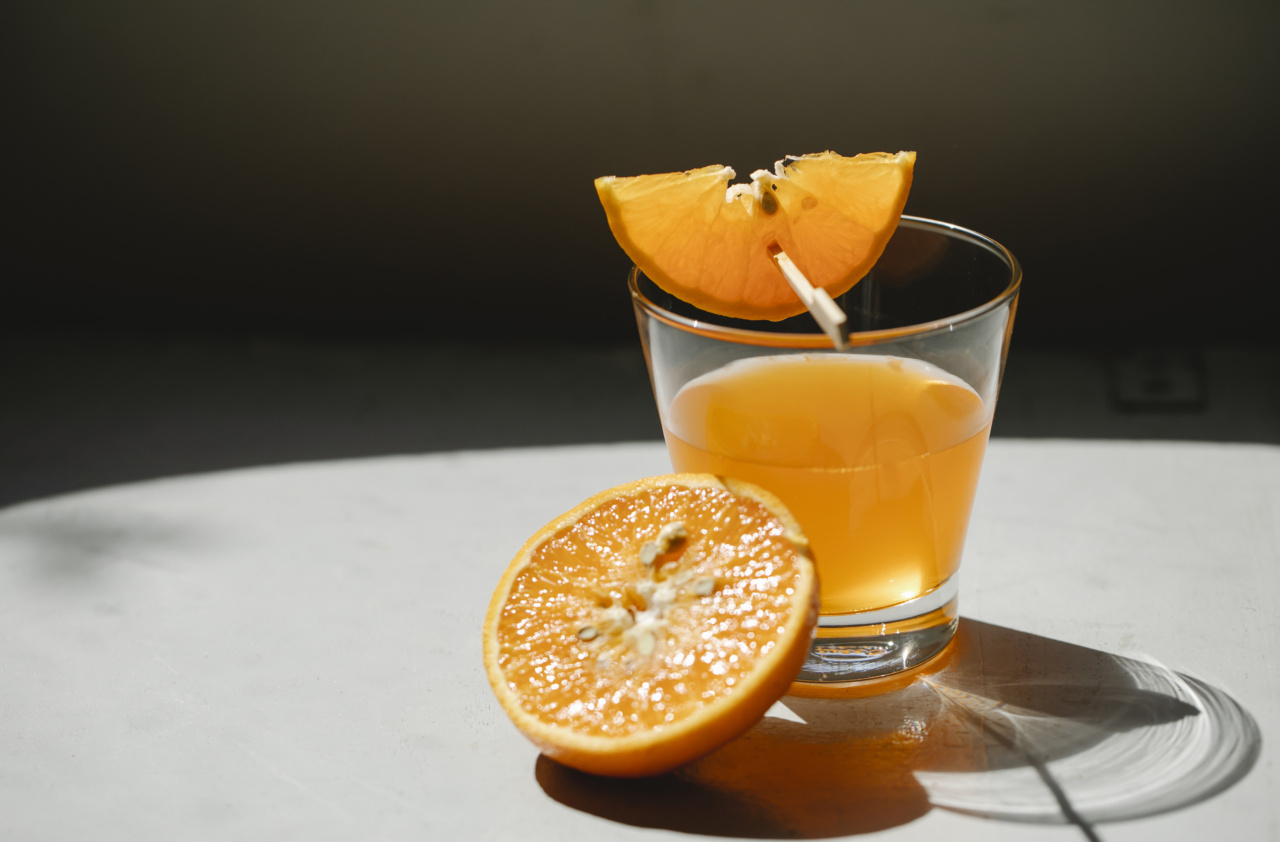An anti-reflux diet, also known as an acid reflux diet or GERD diet, is a dietary plan designed to help reduce the symptoms of acid reflux.
Acid reflux occurs when the valve that separates the stomach from the esophagus weakens, allowing stomach acid to flow back up into the esophagus. This can cause a burning sensation known as heartburn, along with other symptoms such as regurgitation, chest pain, and difficulty swallowing.
Why Follow an Anti-Reflux Diet?
Following an anti-reflux diet can be beneficial for individuals who experience frequent acid reflux symptoms.
By avoiding certain foods and drinks that can trigger reflux, you can help alleviate the discomfort and reduce the risk of complications associated with acid reflux.
What to Eat on an Anti-Reflux Diet
While everyone’s triggers may vary, there are certain foods and drinks that are commonly considered to be reflux-friendly. These include:.
1. Lean Proteins
Opt for lean protein sources such as skinless poultry, fish, and tofu. These options are low in fat and are less likely to trigger reflux symptoms compared to fatty cuts of meat.
2. Non-Citrus Fruits
Fruits like bananas, apples, pears, and melons are generally well-tolerated by individuals with acid reflux. These fruits are less acidic compared to citrus fruits and can provide essential vitamins and nutrients.
3. Vegetables
Most vegetables are considered safe for an anti-reflux diet. However, it’s important to avoid those that are known to trigger symptoms for you personally. Common reflux-friendly vegetables include green beans, broccoli, cauliflower, and carrots.
4. Oatmeal
Oatmeal is a great breakfast option for individuals with acid reflux. It is filling and provides fiber, which can help regulate digestion. Just ensure that you avoid adding high-fat ingredients like butter or cream.
5. Whole Grains
Choose whole grain foods like brown rice, whole wheat bread, and whole grain pasta. These foods are high in fiber and can help prevent reflux symptoms.
6. Almond Milk
If you enjoy a glass of milk but find that it triggers your acid reflux, try switching to almond milk. Almond milk is low in fat and can be a suitable alternative for those with reflux.
7. Ginger
Ginger has long been used for its digestive health benefits. It can help soothe the digestive tract and reduce inflammation in the esophagus. Consider incorporating ginger into your diet by adding it to smoothies or sipping ginger tea.
8. Herbal Tea
Many herbal teas, such as chamomile or licorice tea, can help reduce symptoms of acid reflux. These teas are naturally caffeine-free and can provide a soothing effect on the digestive system.
9. Non-Citrus Juices
While citrus juices can aggravate reflux symptoms, there are plenty of non-citrus alternatives to enjoy. Apple juice, for example, is a reflux-friendly option that can be enjoyed in moderation.
10. Water
Staying hydrated is important for overall health, including digestive health. Aim to drink plenty of water throughout the day to help dilute stomach acid and prevent reflux.
What to Avoid on an Anti-Reflux Diet
While the focus of an anti-reflux diet is on what to eat, it’s equally important to know which foods and drinks to avoid to reduce reflux symptoms. These include:.
1. Fatty Foods
High-fat foods, such as fried foods, full-fat dairy products, fatty cuts of meat, and rich desserts, are known to relax the lower esophageal sphincter (LES) and delay stomach emptying. This can increase the likelihood of acid reflux.
2. Citrus Fruits and Juices
Oranges, grapefruits, lemons, and other citrus fruits, as well as their juices, are highly acidic and can irritate the esophagus. Avoid consuming these if you experience acid reflux symptoms.
3. Tomatoes
Tomatoes and tomato-based products, like pasta sauce and ketchup, are highly acidic and can trigger reflux symptoms. Opt for alternatives like pesto or cream-based sauces instead.
4. Spicy Foods
Foods that are spicy or contain ingredients like chili peppers, hot sauce, or salsa can cause heartburn and worsen acid reflux symptoms. It’s best to avoid these if you’re prone to reflux.
5. Carbonated Drinks
Carbonated beverages, including soda and fizzy drinks, can increase the frequency of belching, which can push stomach acid into the esophagus. Opt for non-carbonated alternatives like still water or herbal tea.
6. Caffeine
Caffeinated beverages like coffee and tea can relax the LES and stimulate the production of stomach acid, leading to reflux symptoms. Consider switching to decaffeinated versions or alternative non-caffeinated beverages.
7. Alcohol
Alcohol can worsen acid reflux symptoms by relaxing the LES and increasing stomach acid production. It’s best to limit or avoid alcohol consumption if you’re prone to reflux.
8. Chocolate
Chocolate contains both caffeine and a substance called theobromine, which can relax the LES and contribute to acid reflux. If you can’t resist chocolate, opt for small portions of dark chocolate instead.
9. Peppermint
While peppermint is often used to soothe digestive discomfort, it can actually relax the LES and worsen reflux symptoms. Avoid peppermint tea and candies if you experience acid reflux.
10. Acidic Condiments
Condiments like vinegar, ketchup, mustard, and mayonnaise are highly acidic and can exacerbate reflux symptoms. Consider using alternatives like olive oil or avocado for flavoring instead.
Conclusion
Following an anti-reflux diet can help minimize the discomfort and symptoms associated with acid reflux. By choosing reflux-friendly foods and avoiding triggers, you can take control of your diet and manage your acid reflux effectively.
Remember, it’s essential to identify your personal triggers and tailor the diet according to your specific needs. Consult with a healthcare professional or registered dietitian for personalized advice.






























